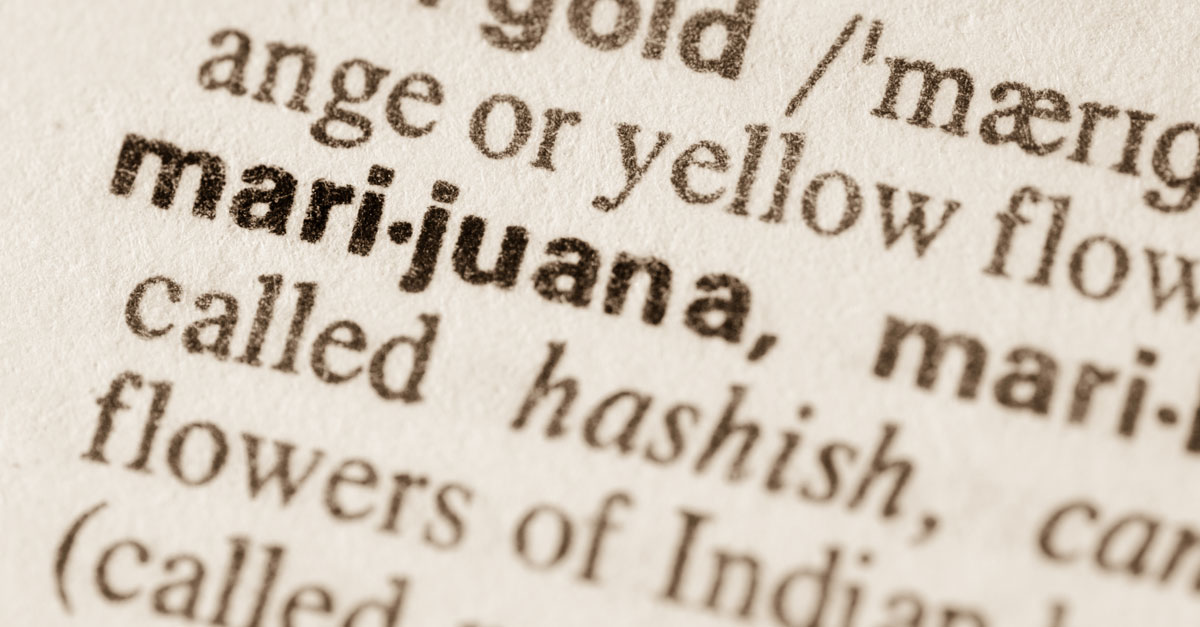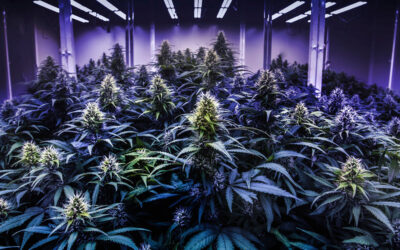Is The Term “Marijuana” Bad?

Is The Term “Marijuana” Bad?
Debating Language, History, and Equity in Cannabis Policy
In 2022, Washington Governor Jay Inslee signed a bill into law that eliminates the term “marijuana” from all state legislation, replacing it with “cannabis.” This decision, sparked by concerns over the racially charged and derogatory connotations of the term “marijuana,” has reignited a longstanding debate over language, history, and equity in cannabis policy.
The effort to retire the term “marijuana” is not confined to Washington alone; it reflects a broader national movement seeking to revise language associated with cannabis. Advocates argue that the term “marijuana” carries a heavy historical baggage, rooted in racist narratives that have perpetuated systemic inequities within drug policy.
In this week’s blog we will take a look at the term itself and objectively answer “Is the term marijuana bad?”
The Origin of “Marijuana”
The term “marijuana” has a complex and controversial origin intertwined with cultural, linguistic, and political factors. It derives from the Spanish word “marihuana” or “marijuana” which may have roots in Mexican Spanish or indigenous languages. While the exact etymology remains disputed, it likely emerged in Mexico during the early 20th century.
During this time, cannabis was increasingly associated with Mexican immigrants, and the term “marijuana” became linked with racial prejudices and anti-immigrant sentiments in the United States. Sensationalist media outlets and political figures capitalized on these prejudices, propagating fear and misinformation about the plant and its users.
In the 1930s, fueled by political agendas and the burgeoning war on drugs, the U.S. government implemented stringent regulations on cannabis, culminating in the Marihuana Tax Act of 1937. This legislation effectively criminalized the plant and cemented the term “marijuana” in the American lexicon.
Opposing Viewpoints
At the forefront of the movement to abolish the term “marijuana” is Washington Democrat Melanie Morgan, who sponsored the bill in the state House. Morgan, along with many supporters, views the term “marijuana” as pejorative and inherently racist. By replacing it with “cannabis,” they aim to challenge the negative stereotypes and stigmas associated with the drug, particularly those that have disproportionately impacted communities of color.
“This is just another layer, of peeling off the systemic racism that’s built in our system”
-Melanie Morgan on rescinding the term “marijuana”. NPR
Not everyone agrees with the move to eliminate the term “marijuana.” Some historians argue that the focus on the term overlooks its historical context within Mexican culture and its emergence in the U.S. anti-drug dialogue. They contend that while the term may have been used in racially charged rhetoric, its origins do not inherently make it derogatory.
Some critics argue that the focus on language detracts from more pressing issues of racial equity within cannabis policy. While retiring the term “marijuana” may be a symbolic gesture, they argue that it does little to address the systemic racism embedded within drug laws and enforcement practices and that it is a waste of time and effort.
Despite these criticisms, supporters of retiring the term “marijuana” maintain that language matters and that changing it is a crucial step towards dismantling the racist narratives that have long plagued drug policy. By reframing the discussion around cannabis using more neutral terminology like “cannabis,” they hope to foster a more inclusive and equitable approach to drug policy.
Scientific and Medical Terminology
For others, the debate over terminology extends beyond racial connotations. Advocates for using scientific terminology in legislation argue that referring to cannabis by its scientific name rather than colloquial “street names” promotes greater scientific literacy and precision.
By employing terms like “cannabis” instead of “marijuana,” they contend that lawmakers can establish more stable and consistent definitions, reducing ambiguity in regulatory statutes. Additionally, scientific terminology could enhance the credibility of legislative language, providing a foundation for more informed discussions and decisions surrounding cannabis policy.
Moreover, transitioning from the term “marijuana” to “cannabis” holds significant implications for the medical field and health-related issues. Proponents argue that adopting scientific terminology aligns more closely with the medical community’s understanding of the plant’s therapeutic properties and potential benefits. This shift in language may also contribute to reducing the stigma associated with medical cannabis use, facilitating more open dialogue between patients and healthcare providers.
Cannabis terminology advocates also argue that standardized terminology could aid in research efforts by ensuring consistency in data collection and analysis, ultimately advancing our understanding of the medical potential of cannabis and informing clinical practice.
“We really should refer to things in legislation by their scientific names rather than street names. Not because of racism, but because of scientific literacy and the stability that creates in terms of definitions and their use in courtrooms.”
-Anonymous Reddit user
_____________________
Deciding whether the word “marijuana” is bad isn’t straightforward. It’s a complicated matter influenced by history, culture, and ongoing policy talks. While it’s been linked to racism and unfair policing, its effects can differ based on personal views and the situation. It ultimately comes down to personal beliefs (and cultures). Will other states follow suit after Washington? We’ll keep you posted.
Latest GreenCore News
Going Green: The Rise of Sustainable Cannabis Practices
Going Green: The Rise of Sustainable Cannabis Practices The cannabis market in North America is set to explode, growing from $9.2 billion in 2017 to an expected $50 billion in the next ten years. Global spending on cannabis has also hit new peaks, drawing attention to...
Master Tips For Home Cannabis Cultivation
Master Tips For Home Cannabis Cultivation Spring has arrived, beckoning the season of seed-starting. Whether you're nurturing your green indoors or amidst the great outdoors, whether you're a novice or a seasoned hand at cultivation, there's always room to glean some...
High-Tech Highs: Cannabis Cultivation Innovations
High-Tech Highs: Cannabis Cultivation Innovations Technology has transformed the cannabis industry and it is constantly evolving. From innovative vape products to cutting-edge services, we are getting higher than ever. In our article: Revolutionary New Cannabis...
Contact Us
Office Location
1600 Golf Road, Suite 1200
Rolling Meadows, IL 60008
Office Hours
M-F: 8am - 6pm
Phone
847-201-4600



